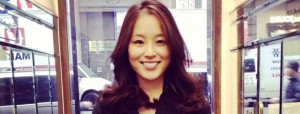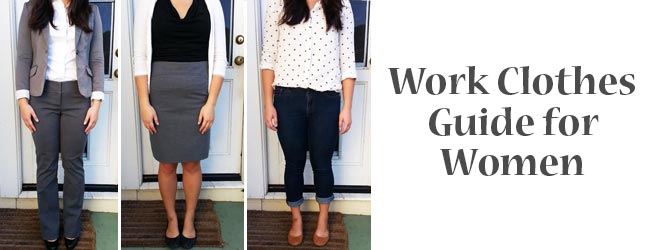Guide to 3 Types of Work Clothes for Women:
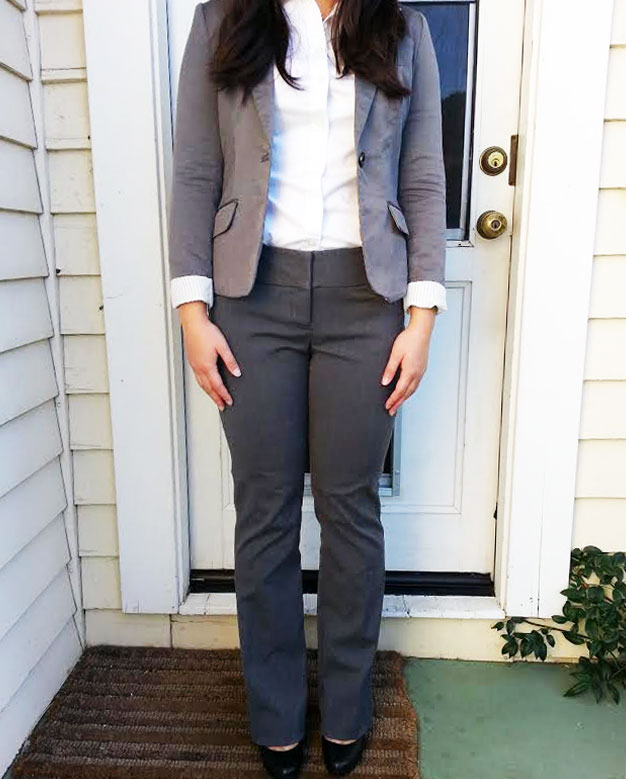
Business Professional (or Business Formal)
Suit: The Limited, Dress Shirt: Banana Republic, Shoes: Macy’s
- A slim cut pantsuit, matching jacket and skirt combo, or structured dress are safe bets (make sure to iron!). Make sure dresses and skirts are knee-length and do not have large slits. Stick with black, navy, gray, and white if you are dressing for an interview.
- Definitely wear closed-toed and scuff-free shoes, and if you’re a heels girl try not to wear anything higher than three inches.
- When it comes to tops, I like to stick with dress shirts but if you have other blouses that aren’t too loud those are a good alternative too.
- It’s always better to invest in dress clothes that are high quality and fit you well, but if you’re on a budget like myself, just invest in one or two nice pieces that go with everything. See if you can borrow dress clothes from a friend with good taste for that interview or first day of work while you save up!
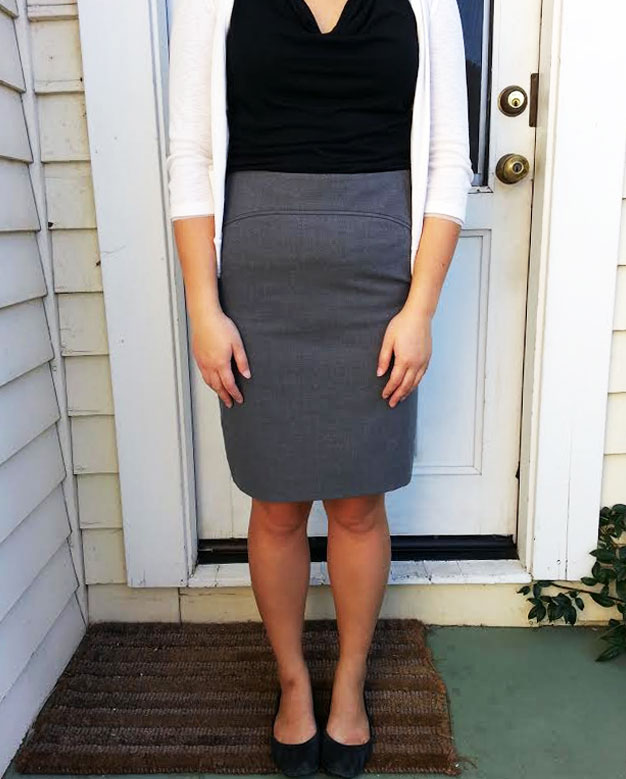
Business Casual
Cardigan: H&M, Top: Target, Skirt: The Limited, Flats: DSW
- You can be a little more creative here than with a business professional dress code, but still try to stay away from loud colors and prints or jewelry that’s gaudy.
- For bottoms, a pencil or A-line skirt, dress pants, or khakis is appropriate
- A solid-colored sweater or cardigan with a nice top is a good way to stay comfy and still look suitable for work.
- No flip flops, sneakers, or sandals.
- I’ve noticed that many companies have very different definitions of what they consider business casual (for example, some allow jeans as part of this dress code), but if you’re new to a job that requires this type of dress it’s better to be safe than sorry until you can find out the rules for certain.
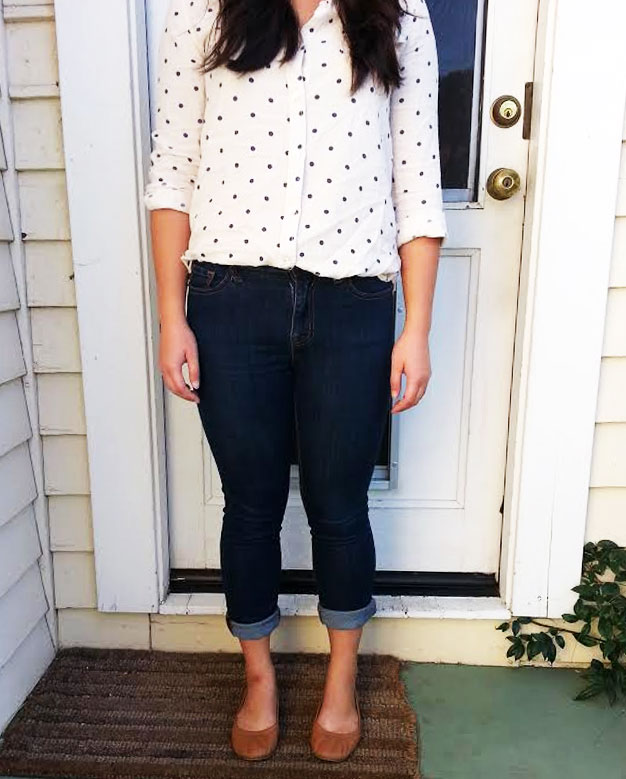
Casual Work Wear
Shirt: Urban Outfitters, Jeans: Urban Outfitters, Flats: Tory Burch
- Even though the casual dress code is the most flexible, remember you’re still dressing for work so you do need to put in some effort!
- No shorts—if it’s a hot day, try a sundress instead. You should still make sure it is an appropriate length for work (maybe an inch or two above knee-length)
- I know leggings are comfortable, but I would stay away from wearing them to work. Don’t want to run the risk of them being even slightly see-through, or looking like you’re on your way to the gym. Black jeans are a good alternative.
- If you wear it to the club, don’t try and get away with wearing it to work (so nothing that is high-cut or skin-tight)
- Be comfortable! The purpose of a casual dress code is for you to be able to be yourself and not have to worry about what you’re wearing to work (if you’re not into that) so take advantage!
Dressing for Work
If you’re not sure if you should wear something to work or not, definitely try to err on the more conservative side. Try and pay some attention to what co-workers are wearing as a guideline, and if you want to be extra safe you can always consult your company’s HR department. Each company and job is different, but as long as you take the time to make sure you’re dressed right, you’ll be good to go!





